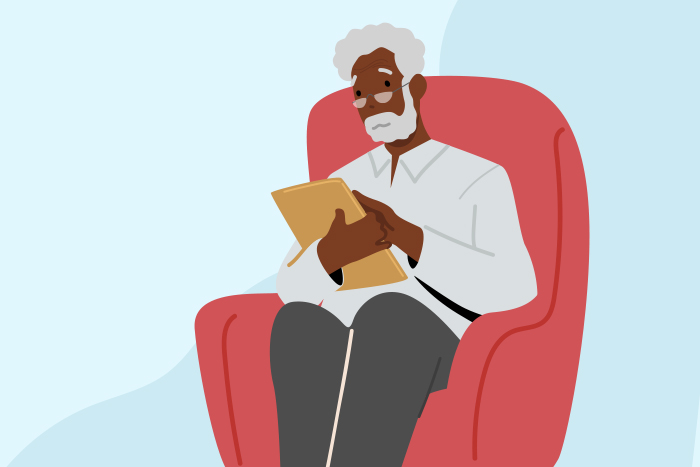The Link Between Depression and Chronic Illness
Many older adults live with long-term health problems like heart disease, arthritis, or diabetes. These chronic illnesses can make everyday life harder—and they can also affect your mental health. In fact, depression and chronic illness are closely connected. One can make the other feel worse, and that can create a tough cycle.
The good news? Treating depression can help you feel better—physically and emotionally.
How Physical and Mental Health Work Together
Our minds and bodies are closely connected. When something is off in one, it often affects the other.
Chronic illnesses put stress on your body. That stress can also affect your brain, your mood, and your energy levels. Over time, it’s common to feel worn out, discouraged, or down. When these feelings stick around or start getting in the way of daily life, it could be a sign of depression.
According to the National Institute of Mental Health (NIMH), people with chronic illnesses are more likely to develop depression. In fact, about one-third of people with a serious medical condition also experience depression.
Why Depression and Chronic Illness Often Go Together
There are a few reasons why depression is more common in people with long-term health problems:
Living With Pain or Discomfort: Conditions like arthritis, nerve damage, or heart disease can cause pain or fatigue that wears you down over time.
Dealing With Lifestyle Changes: You may have to give up favorite activities, change your routine, or rely more on others for help.
Managing Ongoing Stress: Keeping up with doctor’s visits, medications, or new diets can be overwhelming.
Feeling Isolated: If it’s harder to get out and socialize, it’s easy to feel lonely—which can lead to depression.
How Depression Affects Your Body
Depression doesn’t just affect your mood. It can also make physical symptoms worse. For example:
It can make pain feel more intense.
It may lower your energy, making it harder to get moving or stick to treatment.
It can affect appetite and sleep, which are both key for healing.
Depression may also lead to poor self-care, like skipping medications, not going to doctor appointments, or eating poorly.
This creates a loop: your health condition makes you feel depressed, and that depression makes the condition harder to manage.
What Depression Feels Like
Depression can look a little different in older adults. Some people may not feel sad but instead feel:
More tired than usual
Less interested in things they used to enjoy
Trouble sleeping or sleeping too much
More aches and pains than usual
Forgetful or more confused
More withdrawn or irritable
If you’ve been feeling like this for more than two weeks, it’s a good idea to talk to your doctor.
Getting Help Makes a Difference
Depression is a medical condition, just like diabetes or high blood pressure. And like those conditions, it can be treated.
Here are three main types of treatment:
1. Talk Therapy
Talking with a therapist can help you work through stress, grief, or changes that come with aging and illness. A type of therapy called cognitive behavioral therapy (CBT) is often used to help people manage both depression and chronic illness.
2. Medication
Antidepressant medications help balance chemicals in your brain that affect mood. Some common types include SSRIs (like sertraline or escitalopram). These are often safe for older adults, but your doctor will consider any medications you already take to avoid interactions.
3. Lifestyle Changes
Even small daily habits can make a big difference:
Stay active with light movement like walking or stretching.
Eat regular meals with a focus on whole foods, fruits, and vegetables.
Sleep well by keeping a consistent bedtime.
Talk to others regularly—even phone calls help.
Practice calming techniques like deep breathing or gentle music.
You don’t have to do everything at once. Small steps count.
You’re Not Alone
Living with a chronic illness is hard—and dealing with depression on top of that can feel like too much. But you’re not alone. Many older adults face the same struggles, and there is help. Treating depression can make it easier to manage your health, reduce pain, and improve your overall quality of life.
Start by talking to your doctor. They can help you find the right support and treatment plan for you.
Sources:
National Institute of Mental Health: Understanding the Link Between Chronic Disease and Depression
Mayo Clinic: Depression

